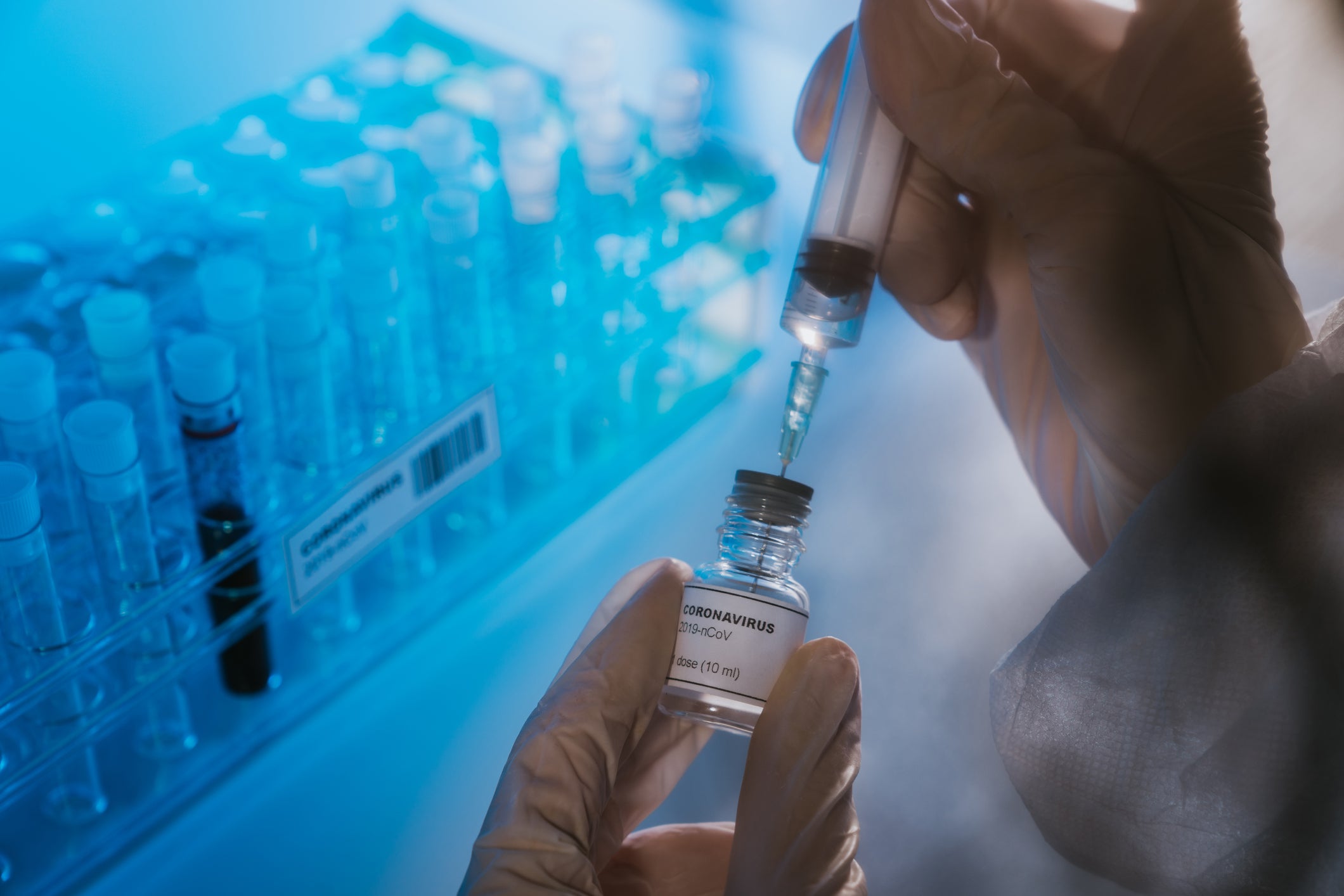Multiple adverts for Covid antibody tests banned for implying they would tell people if they were immune
Advertising watchdog concluded that consumers would wrongly think the test would indicate permanent immunity

Three different advertisements for Covid-19 antibody tests have been banned by the advertising watchdog, ASA, for claiming they could tell people whether or not they were immune to the virus.
The London Vaccination Clinic, the Solihull Health Check Clinic and XMedical Ltd, all shared adverts for coronavirus antibody tests during the pandemic, which have now been ruled against by the ASA.
The London Vaccination Clinic emailed its advert to consumers on 27 May saying those who were thinking about returning to work could take the blood test and know within two days "whether you have potential antibodies (immunity) to Covid 19".
The clinic said there were two different tests that could be taken. The first was an antibody test that it claimed "detects IgG antibodies (long-term immunity)" and the second was an in-clinic antibody test, which has been “CE-approved”.
However, following an investigation by the Advertising Standards Authority (ASA), the advertisement has been banned given that CE certification does not constitute as evidence for medical efficacy and this was not clarified in the email.
“We noted that the qualification ‘potential’ was used in reference to immunity, but we did not consider that conditional language counteracted the impression of efficacy in this context,” the ASA concluded.
"Further, ‘long-term immunity’ implied that the test would enable people to get back to normal life, rather than just detecting Covid-19 antibodies.
“We considered that consumers were therefore likely to understand from the ad that a positive antibody test would show that they were immune to Covid-19, and would enable them to get back to work and other normal activities without the risk of contracting the virus again or transmitting it to others.”
360 Health Ltd, which runs the London Vaccination Clinic, responded by saying they did not believe that the majority of email recipients found their advert to be misleading and had received no other complaints. The company also said it had received five star reviews on a review website and provided the ASA with a screenshot of a customer review.
Nonetheless, the ASA concluded: “Taking into account Government advice on the link between antibody testing and immunity, we concluded that the impression given by the ad, that the tests would indicate whether or not consumers were immune to Covid-19, was misleading and breached the Code.”
A test by XMedical Ltd, was shared on Facebook in May, it claimed that its antibody test could show whether or not someone had developed immunity to the virus. “Antibody testing will tell you if you've had the virus and developed an immune response,” read the advertisement for Corona Test Centre London,
The ASA ruled that the statement in the Facebook ad would be interpreted to mean the tests "were capable of indicating whether or not someone could safely return to work and to social gatherings without fear of contracting or passing on the virus".
Hence the advert was also banned.
A third advertisement for a private health clinic was also banned after it claimed that its antibody test for coronavirus was “100 per cent accurate”.
The Solihull Health Check Clinic included a page on its website in July that featured the claim with while also stating its test was "Public Health England and Government Approved".
The West Midlands-based clinic claimed it only used the Abbott antibody test, which had been found to demonstrate 100 per cent sensitivity and 97.5 per cent specificity, leading them to make such a claim.
But the ASA ruled that neither of these facts were referred to in the advertisement, rendering it misleading.
In its ruling, the ASA said: "We considered that neither the sensitivity rate, nor the specificity rate, when used in isolation, were likely to conform with consumers' likely understanding of "100% accuracy" as presented in the ad.
"We noted that no information on variation of accuracy depending on when the sample was taken was presented in the ad.
"While the sensitivity results presented by different sources varied, they indicated that a negative test result did not rule out the possibility of a previous infection with Covid-19."
Join our commenting forum
Join thought-provoking conversations, follow other Independent readers and see their replies
Comments

Bookmark popover
Removed from bookmarks